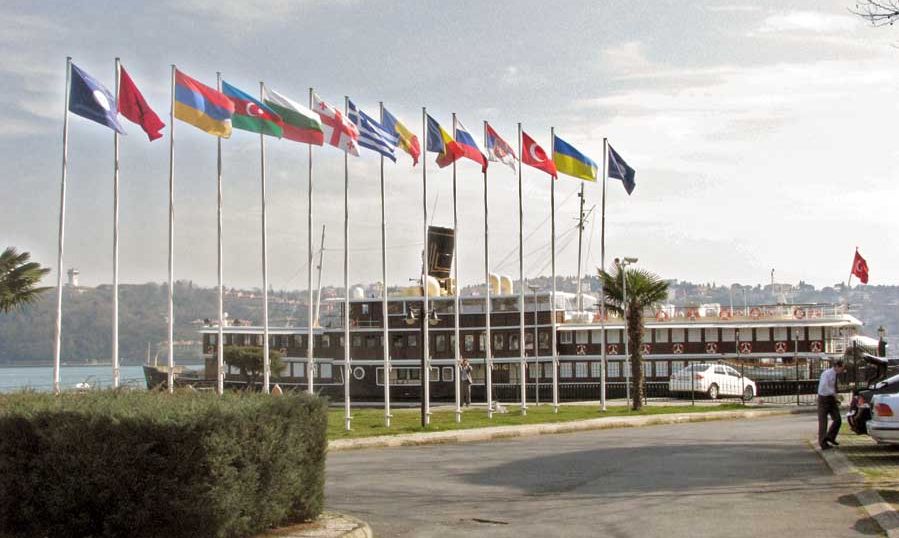
Meeting of the 38th Council of Ministers of Foreign Affairs of the Black Sea Economic Cooperation Organization (BSEC) member states was held on 27 June 2018. Representatives at various levels of member states attended the meeting in Yerevan.[1] At the end of the meeting the BSEC chairmanship passed to Azerbaijan from Armenia in accordance with rotation rules. On the other side, at the end of the Tirana session in 22 July 2017, Armenia took over the presidency of the Parliamentary Assembly of Black Sea Economic Cooperation (PABSEC) which is related to BSEC.[2] On this occasion, it might be useful to evaluate the opportunities and obstacles standing in front of the organization with the perspective of immediate past term president Armenia and the Caucasus.
BSEC which was established on economic grounds to promote peace, stability, and prosperity in the Black sea region in 1992 has aimed to develop regional trade from past to present. The decision making body of the BSEC is the Council of Foreign Ministers but PABSEC can give recommendation to the Council of Foreign Ministers. In addition to PABSEC, BSEC has three other related bodies and affiliated centers which are BSEC Business Council, Black Sea Trade and Development Bank (BSTDB), International Center for Black Sea Studies (ICBSS), BSEC Coordination Center for the Exchange of Statistical Data and Economic Information.[3]
The existing frozen conflicts and disputes in the region have been going on since the organization was founded. Even though it was aimed to provide permanent peace in the region by interdependence, it has not been achieved yet. The goal of establishing free trade area placed in Istanbul Agreement which is the founding agreement of BSEC has been affected by this disagreements and clash of interests between member states. There are many problems and frozen conflicts in the region due to the fact that the region of BSEC is the former Soviet Union area. Ossetia and Abkhazia conflicts between Russia and Georgia, the problem of Crimea and Don Bass between Russia and Ukraine and the occupation of Nagorno-Karabakh by Armenia are some of these problems. It is unlikely that the BSEC, established on such a difficult geography, can act independently from these problems. At the summit meeting held in Istanbul on 25th Anniversary of the BSEC, President Erdogan pointed out that the BSEC could take a more active role in solving these problems.[4]
After the summit held on 22 May, there was a phrase in the declaration of BSEC PA session held in Kyiv in November 2017 that “the regional and global conflicts should be resolved on the basis of full respect of territorial integrity, sovereignty and independence.”[5] However, Armenian delegation to PABSEC raised an objection to this phrase because it is against to the principals of the organization. Although necessity to increase the economic interdependency by keeping the organization out of political orders was stated among the principals of the organization, it is seen that the existence of current frozen problems has a negative effect on the investments.
Looking at the Nagorno-Karabakh problem, the ongoing occupation of Armenia means that its border with Azerbaijan is closed. This situation contrasts with the objectives of the BSEC. The statements made by the Armenian authorities before and after the 38th BSEC Summit shows that Armenia intends to conduct BSEC activities without changing the current situation.[6] They pointed out that the BSEC should not be politicized and that these issues are not under the realm of the authority of the organization.[7] Yet in stark contrast to the statements of the Armenian authorities, the website of the permanent representative of the Armenia to BSEC contains information about the Armenian genocide allegations[8] and the Nagorno-Karabakh conflict.[9] This situation contradicts the discourse that they are against the politicization of the organization. In Armenia, where the governmental transition as a result of the Velvet Revolution was realized, it is necessary to not continue the previous rhetoric and to change their foreign policy practices.
The BRI (Belt and Road Initiative) project offers new opportunities in the extended Black Sea basin. For example, there are two different routes in the South Caucasus (Trans-Caspian Transit Corridor and Black Sea- Persian Gulf Corridor[10]). On the other hand, the BSEC members Albania, Bulgaria, Romania and Serbia are also 16 + 1 countries in the BRI. Therefore, the BRI has become a project that concerns the objectives of the BSEC. BSEC which has a special representative within the BRI project needs to resolve disagreements especially on the BRI route, in order to take further steps on the project.
As a result, issues that constitute regional instability need to be resolved in order to move the BSEC and its affiliated organizations forward in the line with their long-term goals. The fulfillment of the BSEC's mission in terms of regional development and prosperity will benefit the entire region.
[1] “Erivan’daki KEİÖ zirvesine Türkiye ve Azerbaycan da katılacak,” Sputnik Türkiye, 26 June 2018. https://tr.sputniknews.com/dunya/201806261034030360-erivan-keio-zirvesi-turkiye-azerbaycan/ (access: 02 July 2018)
[2] “Ermenistan KEİ Parlamenterler Asamblesi dönem başkanlığını üstlendi,” News.am ,22 June 2018. https://news.am/tur/news/458045.html (Erişim: 02 July 2018)
[3] T.C. Ministry of Foreign Affairs “Karadeniz Ekonomik İşbirliği Örgütü (KEİ),” T.C. Ministry of Foreign Affairs Official Website, http://www.mfa.gov.tr/karadeniz-ekonomik-isbirligi-orgutu-_kei_.tr.mfa (access: 02 July 2018)
[4] “KEİ Zirvesi, Erdoğan'ın konuşmasıyla başladı,” Sputnik Türkiye, 22 May 2017. https://tr.sputniknews.com/turkiye/201705221028550935-erdogan-kei-zirvesi-acilis-konusmasi/
[5] PABSEC, “Karadeniz Ekonomik İşbirliği Palamenter Asamblesi'nin Kuruluşunun Yirmi Beşinci Yıldönümü konulu Asamble Deklarasyonu, 29 November 2017, Kiev,” Parliamentary Assembly of Black Sea Economic Cooperation Official Website. http://www.pabsec.org/documents.asp?id=4&hl=tr (Access: 02 June 2018)
[6] “Meclis Bşk. yard.: Ermenistan, Karadeniz Ekonomik İşbirliği Örgütünün politizasyonuna karşı,” News.am, 26 June2018. https://news.am/tur/news/458657.html (Access: 02 July 2018)
[7] “Ermenistan Dışişleri Başkan Yardımcısı, KEİ örgütünü siyasileştirme çabaları eleştirdi,” Ermeni Haber, 27 June 2018. https://www.ermenihaber.am/tr/news/2018/06/27/Ermenistan-Karadeniz-Ekonomik-İşbirliği/132203 (Access: 03 July 2018)
[8] Permanent Representative of Armenia to BSEC, “Nagorno Karabakh”, ,” Permanent Representative of Armenia to BSEC official website, http://www.bsec.mfa.am/en/karabagh/ (Access: 02 July 2018)
[9] Permanent Representative of Armenia to BSEC, “Genocide Recognition,” Permanent Representative of Armenia to BSEC official website, http://www.bsec.mfa.am/en/genocide/ (Access: 02 July 2018).
[10] Benyamin Poghosyan, “China’s OBOR Initiative: Opportunities for the South Caucasus,” Emerging Europe, 03 July 2018. https://emerging-europe.com/voices/chinas-obor-initiative-opportunities-for-the-south-caucasus/ (Access: 05 July 2018)
© 2009-2025 Center for Eurasian Studies (AVİM) All Rights Reserved
No comments yet.
-
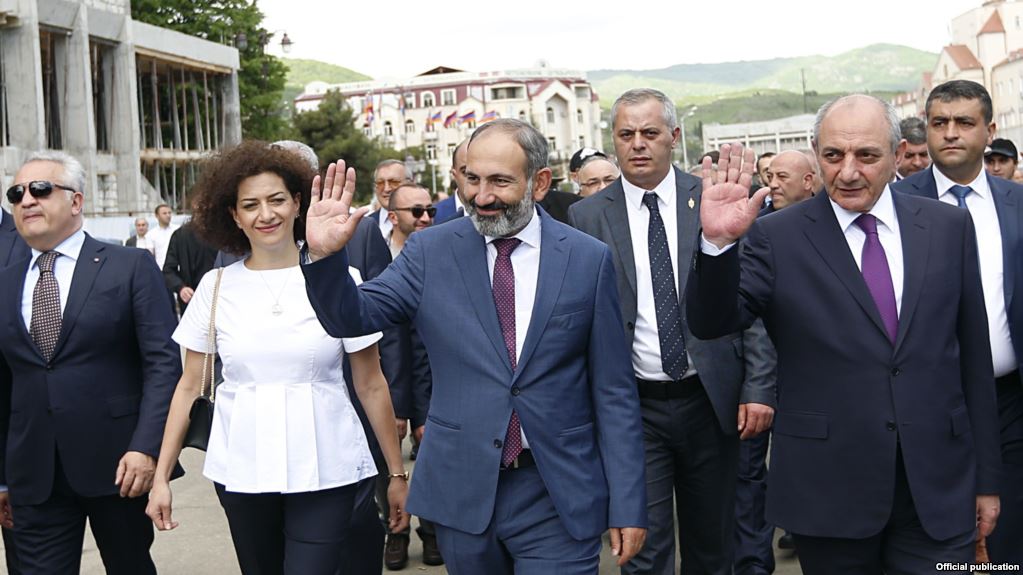 ARMENIA’S PRIME MINISTER HAS CHANGED BUT THE LANGUAGE IS THE SAME
ARMENIA’S PRIME MINISTER HAS CHANGED BUT THE LANGUAGE IS THE SAME
Tutku DİLAVER 17.05.2018 -
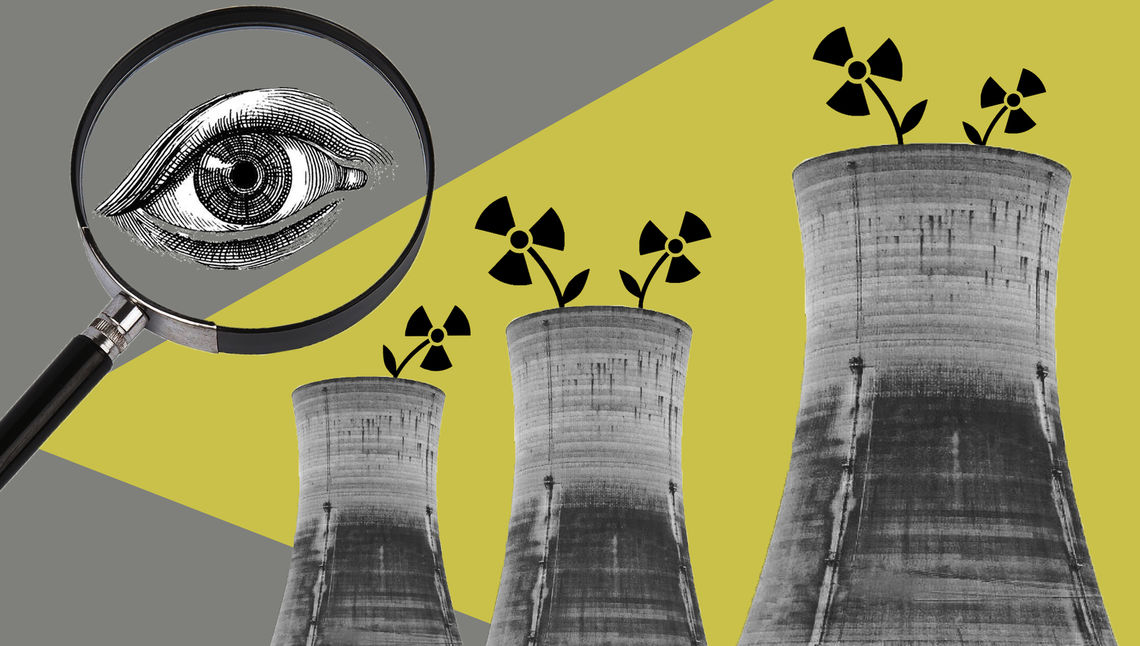 HOW LONG WILL THE THREAT OF METSAMOR CONTINUE?
HOW LONG WILL THE THREAT OF METSAMOR CONTINUE?
Tutku DİLAVER 17.09.2019 -
 UNDERSTANDING NAGORNO-KARABAKH DESPITE THE BIASED MANNER OF THE WESTERN MEDIA
UNDERSTANDING NAGORNO-KARABAKH DESPITE THE BIASED MANNER OF THE WESTERN MEDIA
Tutku DİLAVER 21.01.2021 -
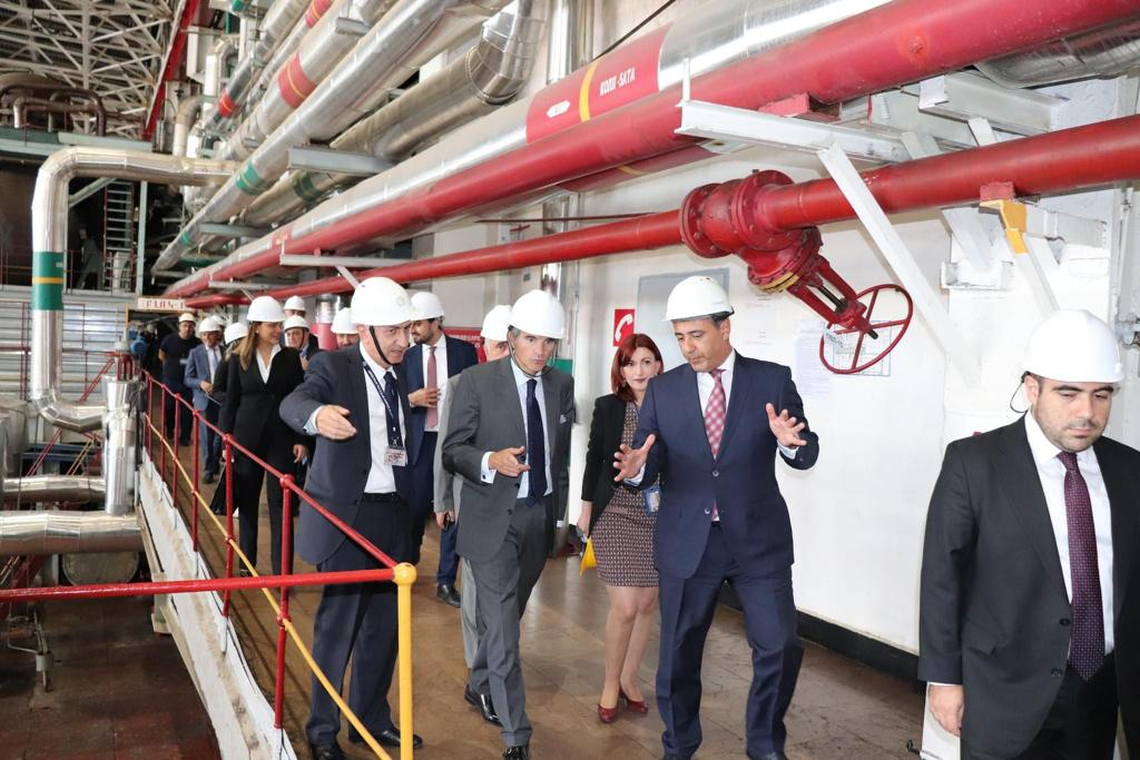 IS THE THREAT POSED BY THE METSAMOR NUCLEAR POWER PLANT BEING OVERLOOKED?
IS THE THREAT POSED BY THE METSAMOR NUCLEAR POWER PLANT BEING OVERLOOKED?
Tutku DİLAVER 10.11.2022 -
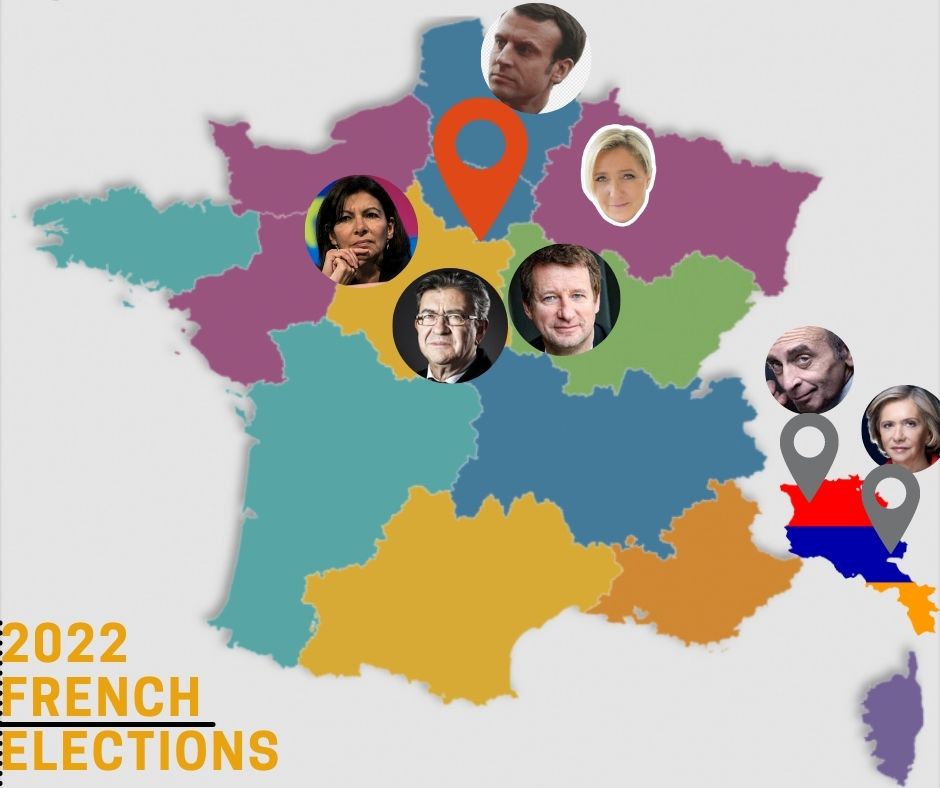 ARMENIA: THE TOOL OF POPULISM IN THE FRENCH ELECTIONS
ARMENIA: THE TOOL OF POPULISM IN THE FRENCH ELECTIONS
Tutku DİLAVER 07.01.2022
-
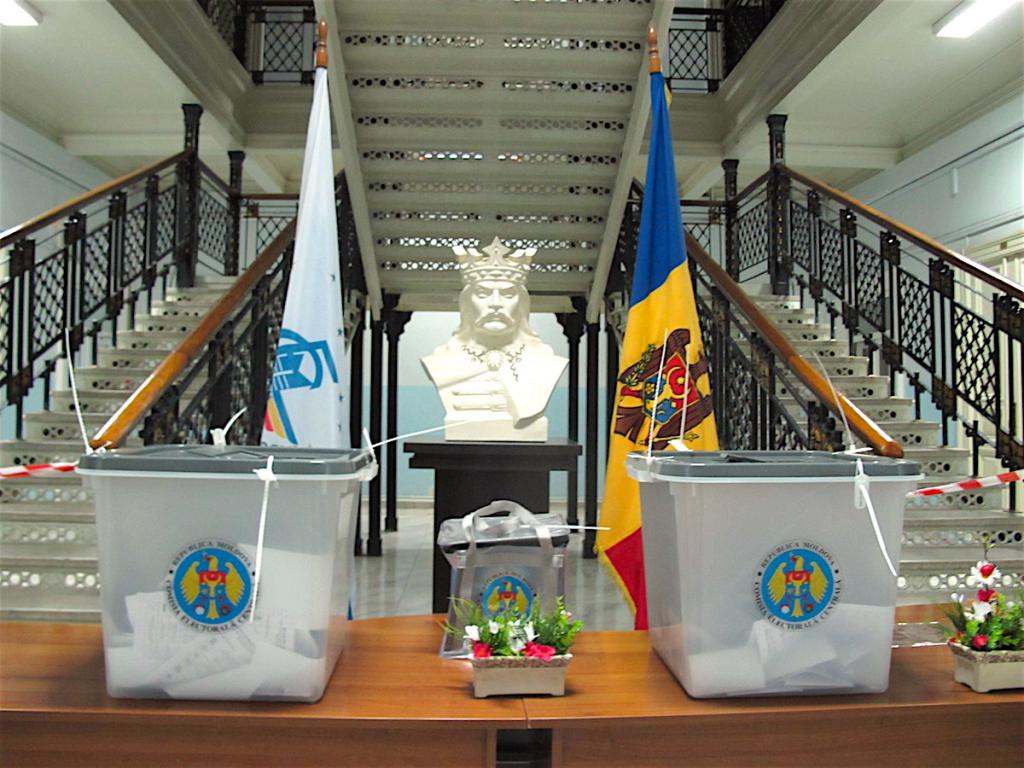 THE 2020 PRESIDENTIAL ELECTIONS IN MOLDOVA: A NEW POLITICAL CONTEXT IN THE POST-SOVIET SPACE?
THE 2020 PRESIDENTIAL ELECTIONS IN MOLDOVA: A NEW POLITICAL CONTEXT IN THE POST-SOVIET SPACE?
Turgut Kerem TUNCEL 02.12.2020 -
SARKOZY IS IN ARMENIA III
Ömer Engin LÜTEM 13.10.2011 -
SEASON OF RESOLUTIONS STARTED IN THE US
Ömer Engin LÜTEM 23.03.2012 -
ARMENIA 2013 (3)
Alev KILIÇ 09.01.2013 -
 ELECTRICYEREVAN AND THE REACTION OF RUSSIA
ELECTRICYEREVAN AND THE REACTION OF RUSSIA
Ecem GÖNÜL 12.07.2015
-
25.01.2016
THE ARMENIAN QUESTION - BASIC KNOWLEDGE AND DOCUMENTATION -
12.06.2024
THE TRUTH WILL OUT -
27.03.2023
RADİKAL ERMENİ UNSURLARCA GERÇEKLEŞTİRİLEN MEZALİMLER VE VANDALİZM -
17.03.2023
PATRIOTISM PERVERTED -
23.02.2023
MEN ARE LIKE THAT -
03.02.2023
BAKÜ-TİFLİS-CEYHAN BORU HATTININ YAŞANAN TARİHİ -
16.12.2022
INTERNATIONAL SCHOLARS ON THE EVENTS OF 1915 -
07.12.2022
FAKE PHOTOS AND THE ARMENIAN PROPAGANDA -
07.12.2022
ERMENİ PROPAGANDASI VE SAHTE RESİMLER -
01.01.2022
A Letter From Japan - Strategically Mum: The Silence of the Armenians -
01.01.2022
Japonya'dan Bir Mektup - Stratejik Suskunluk: Ermenilerin Sessizliği -
03.06.2020
Anastas Mikoyan: Confessions of an Armenian Bolshevik -
08.04.2020
Sovyet Sonrası Ukrayna’da Devlet, Toplum ve Siyaset - Değişen Dinamikler, Dönüşen Kimlikler -
12.06.2018
Ermeni Sorunuyla İlgili İngiliz Belgeleri (1912-1923) - British Documents on Armenian Question (1912-1923) -
02.12.2016
Turkish-Russian Academics: A Historical Study on the Caucasus -
01.07.2016
Gürcistan'daki Müslüman Topluluklar: Azınlık Hakları, Kimlik, Siyaset -
10.03.2016
Armenian Diaspora: Diaspora, State and the Imagination of the Republic of Armenia -
24.01.2016
ERMENİ SORUNU - TEMEL BİLGİ VE BELGELER (2. BASKI)
-
AVİM Conference Hall 24.01.2023
CONFERENCE TITLED “HUNGARY’S PERSPECTIVES ON THE TURKIC WORLD"









